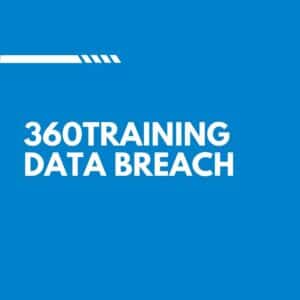
In Washington state, about one-third of workers’ compensation claims are handled by self-insured employers, companies that choose to manage and pay claims directly rather than through the Department of Labor & Industries (L&I). While this system can streamline costs for employers, it often creates serious challenges for injured workers seeking fair compensation.
If you’ve been injured on the job and your employer is self-insured, it’s critical to understand how this system works and how it can be used against you.
What Is a Self-Insured Employer?
A self-insured employer (SIE) is a company that has received certification from L&I to manage its own workers’ compensation claims. These employers are responsible for:
- Receiving and processing injury reports
- Paying medical bills and wage replacement
- Managing vocational rehabilitation
- Overseeing claim closure and appeals
Instead of working directly with L&I, injured employees must file their claims with their employer (through the company’s Human Resources department) or a third-party administrator hired by the employer.
How Self-Insured Employers Undermine Claims
While self-insured employers are legally required to follow the same rules as L&I, they often use tactics that delay, deny, or reduce benefits. Here are the most common ways they undermine claims:
1. Delaying the Claims Process
Self-insured employers may drag their feet when processing paperwork, scheduling medical evaluations, or responding to inquiries. These delays can:
- Postpone medical treatment
- Interrupt wage replacement (time-loss)
- Increase stress and uncertainty for injured workers
2. Using Biased Third-Party Administrators
Many self-insured employers hire third-party firms to manage claims. These administrators may prioritize cost savings over fairness, leading to:
- Denied claims based on technicalities
- Pressure to return to work prematurely
- Disputes over the severity of injuries
3. Disputing Medical Evidence
Self-insured employers often challenge the findings of your treating physician. They may:
- Request an Independent Medical Exam (IME) from a doctor who is not neutral
- Claim your injury is preexisting or unrelated to work
- Argue that your condition has reached Maximum Medical Improvement (MMI) prematurely
4. Undermining Vocational Rehabilitation
If you can’t return to your previous job, you may be eligible for vocational services. Self-insured employers may:
- Limit access to retraining programs
- Push for job placements that don’t match your skills or limitations
- Dispute your eligibility for long-term benefits
5. Retaliating Against Injured Workers
Some employers retaliate against workers who file claims by:
- Demoting or terminating them
- Creating a hostile work environment
- Refusing to accommodate medical restrictions
Retaliation is illegal, but it’s often subtle and difficult to prove without legal support.
How to Respond and Protect Your Rights
If you’re dealing with a self-insured employer, here’s how to protect yourself and ensure your claim is handled fairly:
1. File Your Claim Promptly
You must file your Report of Accident within one year of the injury date (or two years for occupational diseases). If your employer is self-insured, you’ll need to submit a Self-Insurer Accident Report (SIF-2) and have your doctor complete a Physician’s Initial Report (PIR).
2. Document Everything
Keep detailed records of:
- Medical visits and diagnoses
- Communications with your employer or claim administrator
- Missed work and wage loss
- Any retaliation or mistreatment
This documentation is crucial if you need to protest or appeal a decision.
3. Know Your Appeal Rights
If your claim is denied or mishandled, you can:
- Submit a written protest within 60 days of the decision (15 days for vocational decisions)
- Appeal to the Board of Industrial Insurance Appeals (BIIA) if your protest is rejected
4. Work with an Experienced L&I Attorney
Navigating a self-insured claim can be overwhelming. Hiring an experienced L&I attorney can help you:
- Challenge unfair IME results
- Ensure your medical evidence is properly considered
- Protest or appeal a decision
- Identify additional claims under employment law
Emery | Reddy is one of the few firms in Washington that handles both workers’ compensation and employment law, giving you comprehensive protection.
Why Self-Insured Employers Are Held to the Same Standards
Even though self-insured employers manage their own claims, they are still subject to oversight by L&I. If they violate workers’ rights, L&I can:
- Investigate complaints
- Impose penalties
- Revoke self-insurance certification
However, L&I’s oversight is limited, and enforcement can be slow. That’s why legal representation is often necessary to ensure compliance.
Don’t Face a Self-Insured L&I Claim Alone
Self-insured employers may try to save money by undermining your L&I claim, but you don’t have to face them alone. If you’ve been injured at work and your employer is self-insured, it’s essential to understand your rights.
At Emery | Reddy, we’ve helped thousands of Washington workers fight back against unfair treatment and secure the compensation they deserve. Whether you’re dealing with delays, denials, or retaliation, our legal team is here to help. Call us today for a Free Case Review with an experienced Intake Specialist.




